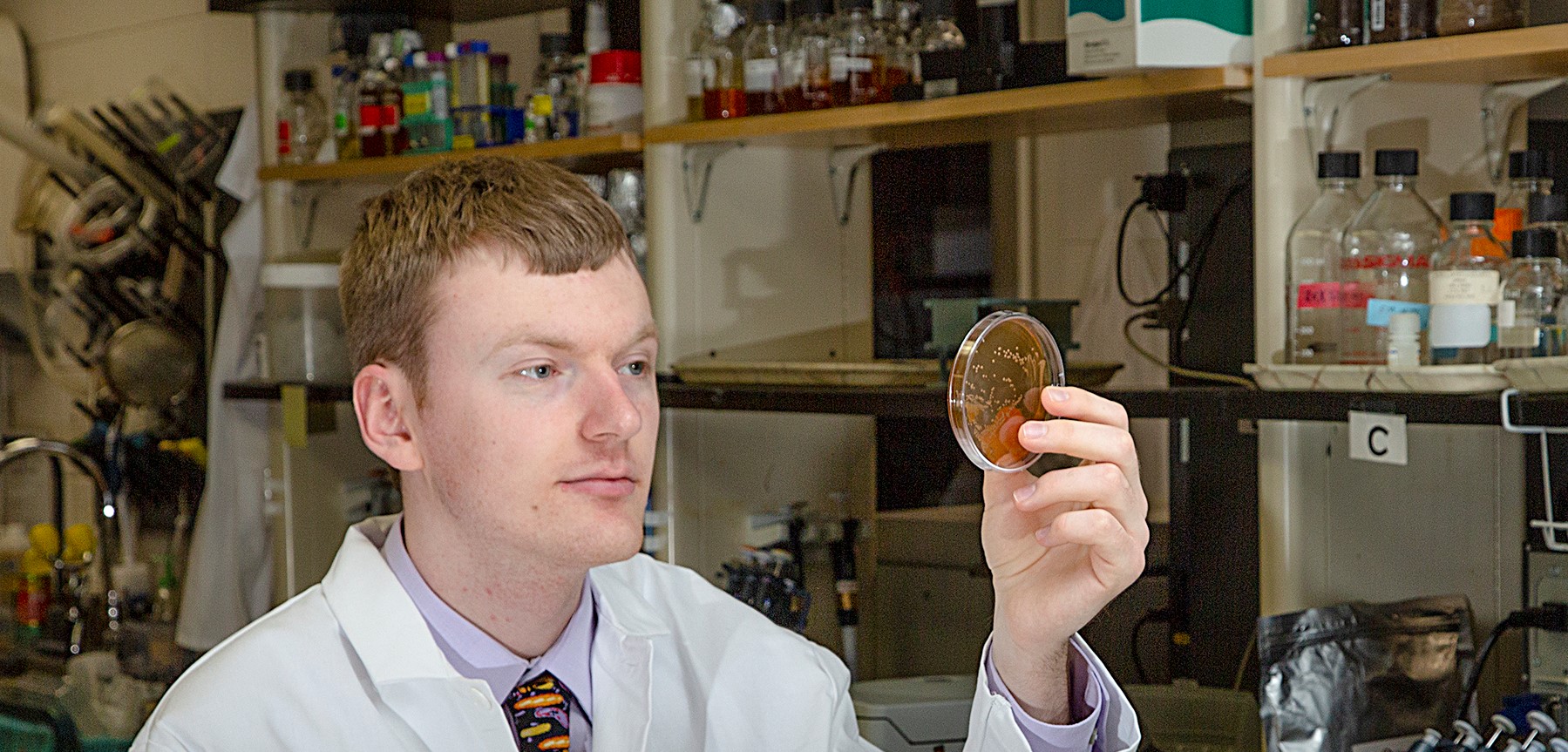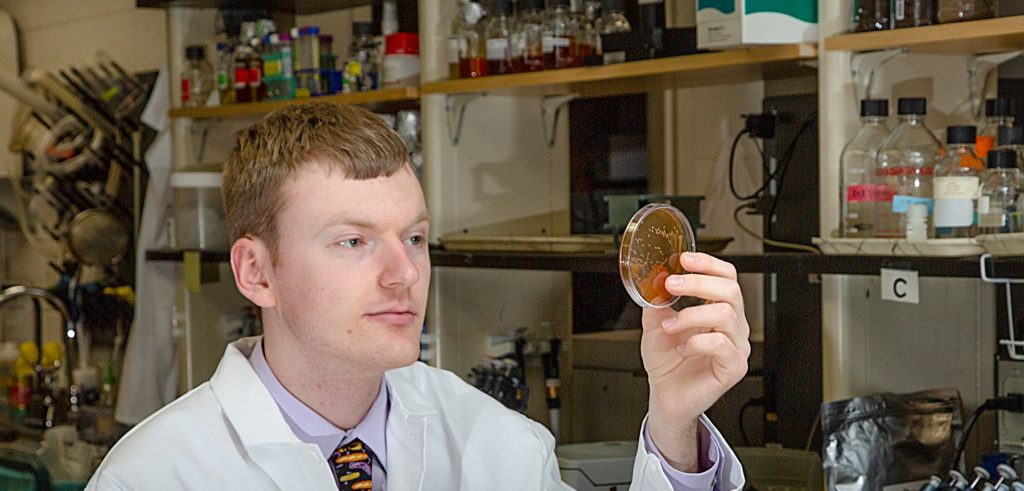Trainee Spotlight: Benjamin Phipps

Benjamin Phipps is an NIH T32 trainee in Michael Strand‘s laboratory. Originally from Woodland, California, Benjamin earned his bachelor’s degrees in Spanish and biology and a minor in chemistry from the University of North Texas in May 2019. While at UNT, he studied the influence of mixed vehicle emissions on regulation of the renin-angiotensin system with Dr. Amie Lund and programmed translational frameshifts in Streptomyces bacteriophages with Dr. Lee Hughes. Benjamin earned research support and two travel grants to report his findings for his undergraduate projects. In August 2019, he enrolled in the Integrated Life Sciences (ILS) program at UGA and completed several laboratory rotations in parasitology before joining the Strand Research Group. He has served as treasurer of the Genetics Graduate Student Association and currently serves in that role for the CTEGD GSA.
Why did you choose UGA?
I chose UGA for its strong track record in research and breadth of research topics. I enrolled at UGA through Integrated Life Sciences, a gateway Ph.D. program that allows incoming students to explore several life sciences departments before choosing one for their dissertation home. This allowed me to experience a greater range of research topics than if I had enrolled directly in a single department. I also developed an interest in parasitology in the last year of my undergraduate program and therefore was drawn to CTEGD, one of the largest and most active centers for parasitology research in the world.
What is your research focus/project and why are you interested in the topic?
Many mosquito species must feed on vertebrate blood to produce eggs, and thereby can transmit several blood-borne pathogens of humans. Malaria is by far the deadliest of these, killing hundreds of thousands of people each year. Suppressing mosquito populations is an attractive approach to curbing transmission of malaria. Two promising targets for limiting mosquito reproductive capacity are the communities of microorganisms that reside in the mosquito gut, which are thought to influence fecundity by aiding blood digestion, and hormones mobilized in response to the blood meal that regulate egg formation. Malaria parasites have an antagonistic relationship with mosquito gut microbes and exploit resources generated for egg production after the blood meal. My dissertation project focuses on how mosquito gut microbes influence malaria infection by modulating reproductive signaling. This research has the potential to identify microbial species that might be exploited for malaria control, as well as elucidate important functions of gut microbes in preventing infections in animals.
What are your future professional plans?
I am presently most interested in a career in academia because I enjoy mentorship and science writing, but I remain open to other opportunities.
What do you hope to do for your capstone experience?
For my capstone experience, I would like to draw on my training in both parasitology and Spanish language to travel to Colombia or Venezuela, where malaria is declining but still endemic. Potential activities there would involve characterizing endemic anopheline populations and their vectorial capacity.
What is your favorite thing about UGA?
I really enjoy the collaborative atmosphere of life sciences at UGA. Groups such as CTEGD provide many opportunities to interact with students and faculty from diverse departments.
Any advice for a student interested in this field?
Be sure to get involved in research as soon as possible, preferably early in your undergraduate program. Reach out to professors whose work interests you, as well as members of their team. It’s fine not to know what specific topics you want to pursue right away; your initial research experience will help you determine what interests you most, and there will be many opportunities to explore diverse fields in graduate school and beyond.
Support trainees like Benjamin by giving today to the Center for Tropical & Emerging Global Diseases.
[button size=’large’ style=” text=’Give Now’ icon=” icon_color=’BA0C2F’ link=’https://ctegd.uga.edu/give/’ target=’_self’ color=” hover_color=” border_color=” hover_border_color=” background_color=” hover_background_color=” font_style=” font_weight=” text_align=’center’ margin=”]

